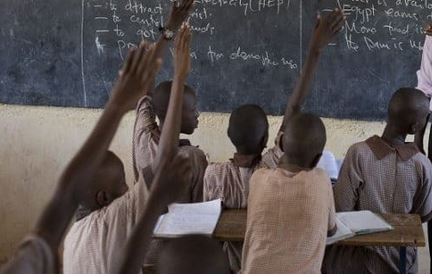Private Vs Public Primary Schools in Nigeria

In Nigeria, schools owned by the government are referred to as public, while those owned by individuals are private. I think the education sector is one of the sectors badly affected by the country’s economic situation and the crop of leaders we have. The willingness and effort to make early-age schools worthwhile isn’t there, and it is because they don’t see it as a priority. Each state has a universal basic education board saddled with the responsibility of coordinating curriculum development, providing instructional materials, library development, sports development, agricultural science and education, guidance and counseling, quizzes and debates, and others. It seems the state of primary schools is not too good.
I was discussing with someone some time ago that there was a time in this country when most parents took their children to public primary. But it seems the reverse is true now because parents no longer have confidence in the quality of education offered in these schools. The teaching environment is not even welcoming to pupils, as many of the classrooms are dilapidated, chairs and tables are in bad shape, and the school environment is unsafe. And to cap it all off, the number of teachers has reduced drastically. There are schools where the number of full-time teachers is not up to ten. Imagine a school of 400 pupils having less than 10 teachers, including the headteachers. This is why you can hardly find a teacher who has his/her children in public primary schools.
Three known advantages of public schools over private schools are that teachers are better paid, qualified (minimum of NCE holder), and tuition-free. I think inadequate funding is one major factor in the downfall of these schools. Most of the problems I highlighted might not have been there had each state government adequately funded these schools. The funny part is that during campaign speeches, most governors boast of providing free education at the primary and secondary levels. Still, the aftermath is that the school is left on autopilot. The truth is nothing is free. The government shouldn’t make such a statement when they know the actual commitment to fund the school will not be honoured.
Does this mean private primary schools are better? Well, it is debatable. Not all private primary schools are good. Some of them see the school business as a money-making machine. That is why you see unqualified teachers in these schools. Their business model is to hire secondary school leavers and pay them between 10-15k monthly. Also, these mushroom schools are not even registered with the government. So, they operate in an area where they can’t be noticed.
Which is better, Private vs. public? My Submission
Even though there are mushroom private primary schools, I think they are better off. The value you get is way higher in these schools. Another noticeable thing is that the level of decadence in public schools is so annoying that even the teachers can’t take their children there. The average private school will at least provide all that their pupils need to succeed academically. Below are some of the cons of public schools:
- Limited teachers and teaching aids
- The teaching environment isn’t conducive
- Teacher to pupil ratio is disheartening
- The standard of education is abysmally low
- It has been related to schools of the poor or downtrodden. This wasn’t so during my time.
- No adequate monitoring of pupils
- Teacher-pupil relationship is poor
- The classroom condition is pathetic
